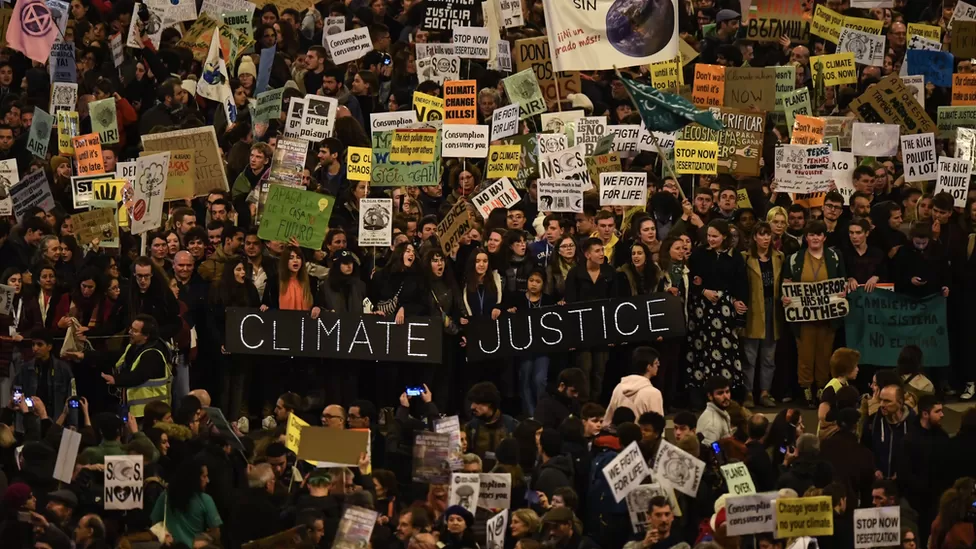1. Global warming is a real phenomenon. We know this beyond any doubt by simple measurement. If, for example, we take the average global temperature from 1951-1980 as a standard, the average temperature from 2010-2019 is 0.75 degrees Celsius higher.
Regardless of the standard set (the reference period against which we compare), the result is the same: global temperature has risen and continues to rise. That's what the data tell us.
As for the data itself, it is mainly provided by 3 independent bodies: the National Oceanic and Atmospheric Administration (NOAA) in the US, the Goddard Institute for Space Studies of NASA, and HadCRUT (a collaboration between the UK Meteorological Agency and the Climatic Research Unit of the University of East Anglia). Since 2010 we have an additional set of data, provided by Berkeley Earth, a Californian NGO.
So we have 4 sets of data, each of them independent of the other 3, and all these sets say one and the same thing: that globally, temperature is rising. The fact that all 4 of these organisations obtain their data independently of each other guarantees beyond any doubt that, as already mentioned, global warming is a real phenomenon - and that, consequently, denying it sends us straight into the realm of fiction, while ignoring it cancels out any chance of being able to deal with it.
If in the 1980s Margaret Thatcher could have been somewhat excused for her skepticism about the reality of global warming, and if in the 1990s Vaclav Klaus could still have been tolerated as an eccentric, today's deniers are not only without excuse, they are downright dangerous.
2. Global warming is not only a real phenomenon, it is an accelerating one. In other words, the global average temperature is rising at an accelerating rate. And we know this beyond any doubt, with data from the organisations mentioned above.
If we take the global average temperature from 1951-1980 as a standard again, we see that in the decade 1980-1989 the temperature increased by 0.17 degrees Celsius compared to the reference period, in the decade 1990-1999 the temperature increased by 0.31 degrees Celsius, in the decade 2000-2009 by 0.51 degrees Celsius, and in the decade 2010-2019 by 0.75 degrees Celsius.
The difference in temperature increase from one decade to the next widens - from 0.17 degrees Celsius (1980-1989 decade compared to the previous decade) to 0.26 degrees Celsius (2010-2019 decade compared to 2000-2009 decade). It is therefore no coincidence that the warmest 10 years since 1880 are found in the period from 2010 onwards.
In short, global warming is accelerating. Hence the growing sense of urgency with which we should take action to deal with it. Because without such measures, things can become unmanageable, or even catastrophic.
3. The global warming that we have been facing for the last hundred years, and especially for the last 70 years, is a phenomenon generated mainly by humans and their activities - through the increasing exploitation of fossil fuels and increasing deforestation.
Of course, this is neither the first nor the last period of global warming in Earth's history. But unlike all previous ones, it is mainly caused by humans. And we know this without a doubt - also thanks to science and scientific methods of assessment.
Some climate change can be explained by internal variability in the climate system itself. So we have climate cycles that can last from a few years (El Niño, for example) to several hundred or even thousands of years.
Separately, we have changes caused by factors external to the climate system. Some of these are natural, such as volcanic eruptions or variations in the Earth's orbit around the Sun. But others are caused directly by humans.
In short, every time we experience climate change, it is caused by several factors, some of which are major and some of which are less influential. Scientists use computer models to determine major causes. In the case of the current global warming, all models show that it would not have happened without the decisive influence of human activities that generate greenhouse gases. And these activities are mainly the extensive use of fossil fuels and the increased deforestation of the planet.
For example, the level of carbon dioxide in the atmosphere began to rise with the onset of the Industrial Revolution and is now significantly higher than at any time in the last 800,000 years.
This is why the 2021 IPCC Assessment Report stated that it is "unequivocal" that the current climate change is caused by humans.










Trackbacks and Pingbacks